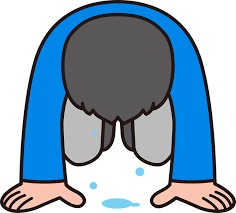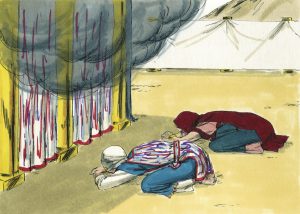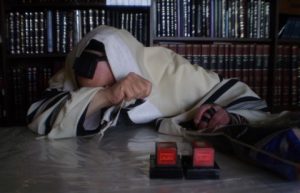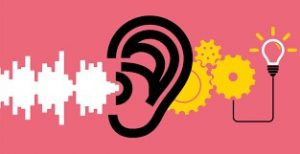Chukas 2021: Falling on One’s Face
by devadmin | June 17, 2021 8:40 pm
We begin with a correction and another mazel-tov shout out to our friends Naomi and David Kaszovitz, upon the upcoming wedding -later today- of their son Josh, who will be marrying Sara Lefkowitz, she the beautiful daughter of Miriam & Steven Lefkowitz. Last week, we introduced Sara as Lara. Why? Ver veyst? I own it! A big mazel tov shout out grandma Beverly Skolnick. Mazel tov as well to Josh’s brothers and sisters and to the entire extended Kaszovitz family. May Lara and Josh to zoche to enjoy together, many decades of blissful marriage.
Another mazel-tov shot-out to chaver Avi Gluck, upon the wedding (this past Tuesday) of his son Yoni, who in a beautiful and spirited wedding, married Sara Halpern, she the beautiful daughter of Shmuel and Baila Halpern. Mazel tov to Yoni, his siblings and to the extended mishpocho. May Sara and Yoni merit to enjoy many decades of blissful marriage.
——————————————————————————————————————————————
Falling on One’s Face
 Two shabossim back, while walking to an aufruf at the White Shul in Far Rockaway, the Ois, while crossing 878- a six-lane wide shtikel main roadway (with lights)- tripped and took a nasty spill. Attempting to not fall directly onto my face and onto the main road (where several cars in each direction thankfully stopped to see if additional help was needed), by lunging forward during the fall, I landed near the median. Not on my face, but on my hand, elbow, and knees. Shoin, in case you’re wondering, the Ois is kimat all better and but waiting for various scabs to fall off. The blood-stained shirt-sleeve was miraculously rejuvenated after a bath in a product called SHOUT followed by a wash in cold water. The suit, on the other hand, did not make it; neither the jacket nor the pants could be saved. Shoin! A small kaporo.
Two shabossim back, while walking to an aufruf at the White Shul in Far Rockaway, the Ois, while crossing 878- a six-lane wide shtikel main roadway (with lights)- tripped and took a nasty spill. Attempting to not fall directly onto my face and onto the main road (where several cars in each direction thankfully stopped to see if additional help was needed), by lunging forward during the fall, I landed near the median. Not on my face, but on my hand, elbow, and knees. Shoin, in case you’re wondering, the Ois is kimat all better and but waiting for various scabs to fall off. The blood-stained shirt-sleeve was miraculously rejuvenated after a bath in a product called SHOUT followed by a wash in cold water. The suit, on the other hand, did not make it; neither the jacket nor the pants could be saved. Shoin! A small kaporo.
Ober the question is this: why are we discussing this personal incident? Does the Ois typically share when he’s not feeling well? Not. It so happens that the topic of falling on one’s face, is, and has been relevant for weeks now. It has? Where and when? We shall address that below, but first this.
According to the free dictionary, to fall (flat) on (one’s)/its face, means azoy:
- Literally, to fall and land on one’s face.
By way of example, I slipped on the banana peel, fell flat on my face, and nearly broke my nose.
Poor Heather fell on her face during recess today, but she only has a few scrapes on her forehead. - To fail thoroughly or in a spectacular or embarrassing way.
I’ll never forget my first comedy routine. I got out there under the bright lights and fell flat on my face—not a single person laughed. Or,
Unfortunately the advertising campaign just kind of fell on its face and never gained any traction with consumers.
I’m afraid that translation will fall flat on its face in this language, since we have no such idiom.
And says the McGraw Hill Dictionary of American Idioms and Phrasal Verbs
- to fall down, face first. Bobby fell flat on his face and skinned his nose.
Down he went—he fell on his face.
- Fig. to fail miserably, usually in a performance. She was terrible in the play.
She fell flat on her face. The whole play fell on its face.

Finally, according to dictionary.com, it means azoy: Fall flat on one’s face. Make a blunder or error of judgment, as in Holly fell on her face whenever she forecast earnings. That weatherman keeps falling flat on his face with his predictions. This term, first recorded in 1614, originally had the literal meaning of “prostrate oneself in reverence.” The present colloquial usage, however, transfers a physical fall to various kinds of bungling. We shall revisit this last meaning below.
And the obvious question is this: who cares? And how is this face falling at all related to Parshas Chukas which covers a few very interesting topics to include the Poro Adumah (Red Heifer), the passing of Miriam, Aharoin, and the death sentence meted out to Moishe? We have previously and at length covered those topics -check out the archives at www.Oisvorfer.com – and this year, as we draw close to closing out year eleven of Ois postings, we will focus on the face- fallings we’ve encountered in recent weeks. Who fell down? What’s with the face-falling? And the answer raboyseyee is azoy: face falling is again featured in our parsha. What’s pshat again? Where else have we read about face falling? Who fell? Did anyone get hurt? Were noses broken from the fall? Was anyone sued for a broken sidewalk? Wat caused the face fall? Shoin, before we answer these questions -and others- let’s find a few other face falling incidents.
Shoin, let’s do a quick chazora (look back) to the last few parshas where face-falling is mamish featured in the text of each. Mamish? Let’s begin with our parsha, where following yet another complaint by the Yiddin about their midbar menu choices, we read (Bamidbar 20:3-6) azoy:
וַיָּ֥רֶב הָעָ֖ם עִם־מֹשֶׁ֑ה וַיֹּאמְר֣וּ לֵאמֹ֔ר וְל֥וּ גָוַ֛עְנוּ בִּגְוַ֥ע אַחֵ֖ינוּ לִפְנֵ֥י יְהֹוָֽה׃
The people quarreled with Moishe, saying, “If only we had perished when our brothers perished at the instance of the LORD!
וְלָמָ֤ה הֲבֵאתֶם֙ אֶת־קְהַ֣ל יְהֹוָ֔ה אֶל־הַמִּדְבָּ֖ר הַזֶּ֑ה לָמ֣וּת שָׁ֔ם אֲנַ֖חְנוּ וּבְעִירֵֽנוּ׃ Why have you brought the LORD’s congregation into this wilderness for us and our beasts to die there?
וְלָמָ֤ה הֶֽעֱלִיתֻ֙נוּ֙ מִמִּצְרַ֔יִם לְהָבִ֣יא אֹתָ֔נוּ אֶל־הַמָּק֥וֹם הָרָ֖ע הַזֶּ֑ה לֹ֣א ׀ מְק֣וֹם זֶ֗רַע וּתְאֵנָ֤ה וְגֶ֙פֶן֙ וְרִמּ֔וֹן וּמַ֥יִם אַ֖יִן לִשְׁתּֽוֹת׃
Why did you make us leave Egypt to bring us to this wretched place, a place with no grain or figs or vines or pomegranates? There is not even water to drink!”
וַיָּבֹא֩ מֹשֶׁ֨ה וְאַהֲרֹ֜ן מִפְּנֵ֣י הַקָּהָ֗ל אֶל־פֶּ֙תַח֙ אֹ֣הֶל מוֹעֵ֔ד וַֽיִּפְּל֖וּ עַל־פְּנֵיהֶ֑ם וַיֵּרָ֥א כְבוֹד־יְהֹוָ֖ה אֲלֵיהֶֽם׃
Moishe and Aharoin came away from the congregation to the entrance of the Tent of Meeting, and fell on their faces. The Presence of the LORD appeared to them.
 What just happened? Once again, the not ready for prime time Yiddin were upset about their midbar experience. More specifically, they had a hankering for grains, figs, and pomegranates and complained to Moishe. As an aside, it would take Americans thousands of years to discover the taste and benefits of pomegranate juice. Ober, how did Moishe react? Did he answer them and tell them they were ingrates? Not! He and Aharoin fell on their faces. What’s pshat they fell? Did they trip? Were they pushed? Did they do so voluntarily? For what purpose? What was the significance of the face-falling? And how did that solve the issues and complaints? Ober, before we address these questions, and as we will discover just below, this is not the first time Moishe, and or Moishe and Aharoin together fell on their faces. In fact, it may be the last. What’s taka pshat they fell on their faces? To chap this face-falling routine, let us harken back to Parshas Shelach and then to Parshas Koirach were face falling is featured prominently. It is? Indeed; but most of you missed it because mistama you were thinking that you’re not as bad as the Miraglim (who spoke ill -loshoin horo mamish) -about oversized fruits, or about Koirach and his 250 man strong money-bought rebellion. The bottom line: you were not paying attention to the laining! Veyter. In Shelach (Bamidbar 14:5), we read azoy:
What just happened? Once again, the not ready for prime time Yiddin were upset about their midbar experience. More specifically, they had a hankering for grains, figs, and pomegranates and complained to Moishe. As an aside, it would take Americans thousands of years to discover the taste and benefits of pomegranate juice. Ober, how did Moishe react? Did he answer them and tell them they were ingrates? Not! He and Aharoin fell on their faces. What’s pshat they fell? Did they trip? Were they pushed? Did they do so voluntarily? For what purpose? What was the significance of the face-falling? And how did that solve the issues and complaints? Ober, before we address these questions, and as we will discover just below, this is not the first time Moishe, and or Moishe and Aharoin together fell on their faces. In fact, it may be the last. What’s taka pshat they fell on their faces? To chap this face-falling routine, let us harken back to Parshas Shelach and then to Parshas Koirach were face falling is featured prominently. It is? Indeed; but most of you missed it because mistama you were thinking that you’re not as bad as the Miraglim (who spoke ill -loshoin horo mamish) -about oversized fruits, or about Koirach and his 250 man strong money-bought rebellion. The bottom line: you were not paying attention to the laining! Veyter. In Shelach (Bamidbar 14:5), we read azoy:
(ה) וַיִּפֹּ֥ל מֹשֶׁ֛ה וְאַהֲרֹ֖ן עַל־פְּנֵיהֶ֑ם לִפְנֵ֕י כָּל־קְהַ֥ל עֲדַ֖ת בְּנֵ֥י יִשְׂרָאֵֽל׃
(5) Then Moishe and Aharoin fell on their faces before all the assembled congregation of the Israelites.
Noteworthy: in this instance, both Aharoin and Moishe fell on their faces. At other times, it’s just Moishe doing or taking the fall.
In Bamidbar 16:4 we read azoy:
(ד) וַיִּשְׁמַ֣ע מֹשֶׁ֔ה וַיִּפֹּ֖ל עַל־פָּנָֽיו׃
(4) When Moishe heard this, he fell on his face.
So happens that in this particular instance, Moishe may have good reason to fall on his face; efsher he fainted. Did the desert heat get to him? Not! Instead, let’s read this shtikel Gemora which grada we covered last week. Says the heylige Gemora (Sanhedrin 109) that Moishe fell down when he heard that he was suspected of adultery. Ober does the heylige Toirah suggest that Moishe was accused of adultery? Not! What’s pshat? Why would the heylige Gemora introduce this conspiracy theory? Ver veyst? Says the Mishkenot Yaakov HaSefardi in Mayana shel Torah, so gishmak, azoy: There are times when the most telling indictments are made without mentioning a word of reproof. In an argument between two people, when one says “I’m not evil,” the implication is that “I’m not evil — but you are!” When Moishe heard Koirach say, “All of them (the Jewish People) are holy,” the implication was that “they are all holy – but you aren’t!” The diametrical opposite of holiness is immorality. When Moishe heard that implicit but inescapable accusation, he fell to the ground. Veyter!
In Bamidbar (16:22), when the RBSO was getting ready to mete out community punishment for the sins of but a few (ok, 250 plus a few more), we read this:
(כב) וַיִּפְּל֤וּ עַל־פְּנֵיהֶם֙ וַיֹּ֣אמְר֔וּ אֵ֕ל אֱלֹהֵ֥י הָרוּחֹ֖ת לְכָל־בָּשָׂ֑ר הָאִ֤ישׁ אֶחָד֙ יֶחֱטָ֔א וְעַ֥ל כָּל־הָעֵדָ֖ה תִּקְצֹֽף׃
 But they fell on their faces and said, “O God, Source of the breath of all flesh! When one man sins, will You be wrathful with the whole community?” This time, Moishe and Aharoin fell on their faces because they found it unfair that the RBSO would kill the whole community when only part of them sinned. After that, (following the face fall), the RBSO agreed to not kill the community as a whole but only the people who rebelled.
But they fell on their faces and said, “O God, Source of the breath of all flesh! When one man sins, will You be wrathful with the whole community?” This time, Moishe and Aharoin fell on their faces because they found it unfair that the RBSO would kill the whole community when only part of them sinned. After that, (following the face fall), the RBSO agreed to not kill the community as a whole but only the people who rebelled.
And in Bamidbar (17:10), also in Parshas Koirach, we read this:
(י) הֵרֹ֗מּוּ מִתּוֹךְ֙ הָעֵדָ֣ה הַזֹּ֔את וַאֲכַלֶּ֥ה אֹתָ֖ם כְּרָ֑גַע וַֽיִּפְּל֖וּ עַל־פְּנֵיהֶֽם׃
(10) “Remove yourselves from this community, that I may annihilate them in an instant.” They fell on their faces.
We repeat earlier questions: what’s up with the face falling? Is it but an expression? Or, did they mamish go down? Did they take a fall as do NBA and NHL players? Did they take a flop? Or, did they mamish fall on their faces? For what purpose? Did Moishe alone, and or Moishe and Aharoin together always fall for the same reason? And did the face falling bring about the desired result? Shoin, so many questions, ober where can we find answers?
Shoin, given that face- falling is featured in three consecutive parshas, and that at times it involved only Moishe and at others, both Moishe and Aharoin, avada it’s understood that our sages of yore would weigh in with their own understanding of what went down here. Let’s see what a few had to say.
 Says Rabaynu Bechaya, “they fell on their faces” (Moishe and Aharoin),” in prayer. And in case you’ve been wondering -ever since you started going to shul- why we -sort of- fall, or cover our faces while reciting the “tachnun” prayer, listen to this. Says Rabaynu Bechaya, veyter, azoy: this is the source for our prostrating ourselves during certain parts of our prayers, supplications. In other words, this is why we cover our faces while reciting the prayer of “tachnun.” It was good for Moishe and Aharoin, it should be good for you was well.
Says Rabaynu Bechaya, “they fell on their faces” (Moishe and Aharoin),” in prayer. And in case you’ve been wondering -ever since you started going to shul- why we -sort of- fall, or cover our faces while reciting the “tachnun” prayer, listen to this. Says Rabaynu Bechaya, veyter, azoy: this is the source for our prostrating ourselves during certain parts of our prayers, supplications. In other words, this is why we cover our faces while reciting the prayer of “tachnun.” It was good for Moishe and Aharoin, it should be good for you was well.
Another flavor: Says the sefer Sha’arei Aharon quoting the Shach who proposes an answer based on the Ibn Ezra (got all that?) that prophecy cannot take place during moments of sadness. During the uprising with Koirach, and at other times -all mentioned above- the Yiddin went off the reservation -so to speak- and voiced their issues (mostly about food and drink), and it’s avada understood that Moishe was sad, upset, and at times even angry. Due to his level of despair, Moishe — the token novee — lost his nevuah. He could not prophesy. Says the Ibn Ezra azoy: the reason Moishe fell on his face was in order to restore his nevuah. He needed to lose the anger in order to receive the transmission from the RBSO. Exactly how falling on one’s face changed the mood and reconnected the signal, ver veyst. This need for immediate contact with the RBSO was at times felt by Moishe alone, and at other times also by Aharoin.
Alternatively, falling on one’s face can also be seen as an expression of mourning. In Yehoishua 7:6), we read azoy:
וַיִּקְרַ֨ע יְהוֹשֻׁ֜עַ שִׂמְלֹתָ֗יו וַיִּפֹּל֩ עַל־פָּנָ֨יו אַ֜רְצָה לִפְנֵ֨י אֲר֤וֹן יְהֹוָה֙ עַד־הָעֶ֔רֶב ה֖וּא וְזִקְנֵ֣י יִשְׂרָאֵ֑ל וַיַּעֲל֥וּ עָפָ֖ר עַל־רֹאשָֽׁם׃
Joshua thereupon rent his clothes. He and the elders of Israel lay until evening with their faces to the ground in front of the Ark of the LORD; and they strewed earth on their heads. Yehoishua fell on his face after being informed of the collective punishment that came as a result of Ochon’s violating the prohibition against looting.
In Parshas Koirach, Rashi (16:4) imagines that Moishe fell on his face desperately seeking divine forgiveness for a perpetually rebellious people. In other words: they were bad and he got down to pray for them. Ober says Rav Saadia Gaon that Moishe fell on his face to receive a divine vision of what to do next. And taka, says the Netziv (Naftali Tzvi Yehuda Berlin), azoy: Moishe fell on his face in prayer, and to remind others of when they themselves had fallen on their faces amidst an experience of profound awe (Ha’amek Davar Num. 16:4). Falling on his face, leading by example, was Moishe’s way to remind others to do the same.
Ober, why not pray standing up? Why the need to fall on one’s face? Shoin, let’s learn a shtikel Gemora which has answers to everyone’s questions and which tells us (Taanis 24) of incidents in which righteous people who experienced pain during their prayers had their prayers answered immediately. In one incident where pain and prayer were combined, rain materialized out of nowhere. Another story (Buba Metzia 59b) tells us azoy: Rebbe Eliezer was prevented by his own wife from prostrating himself during prayer as his prayers were immediately answered by the RBSO when he fell on his face. Once, his wife made an error in the date of the month thinking it was Rosh Chodesh (New Moon) when one does not prostrate oneself in one’s prayers; no tachnun), and she did not therefore monitor him while he davened. She was the sister of Rebbe Gamliel who had put Rebbe Eliezer in cheyrim (similar to excommunication) for publicly disagreeing with the majority decision of the other sages. When his wife saw that Rebbe Eliezer prostrated himself in prayer she remonstrated with him saying that his prayers had already caused the death of her brother. While telling her husband that her brother Rebbe Gamliel had died, a long blast of the shofar emanated from the house of Rebbe Gamliel announcing the Rebbe’s death. Rebbe Eliezer wanted to know how it was that his wife had already known about this? She told him that whereas the gates of prayer had been shut since the destruction of the Beis Hamikdash, she had a tradition from her grandfather that prayer accompanied by tears on account of the petitioner feeling wronged was still able to penetrate the iron curtain between the Jewish people and the RBSO, and that her husband’s tearful prayer complaining about the decree making him an outcast had had this effect. As a result, Rebbe Gamliel who had confirmed that decision, had died. Are these stories emes? Ver veyst? Bottom line: ever since, wives don’t let their husbands go down, to pray or otherwise, if you chap. Prostration might be dangerous to your health!
 And the bottom lines? Moishe and Aharoin were older, wiser and knew just how bad the situation was when they reacted by falling on their faces. They knew the RBSO was angry and could mete out instant punishment. They were leaders. Time and again, they fell on their faces and said not a word to the rebellious people. They knew that they must cry out to the RBSO for a miracle if the Yiddin were to be spared. When his leadership was most challenged, Moishe rose to the occasion by going all the way down in a posture of humble submission. He took a physical posture of submission and humility amidst rebellion and rejection of all he stood for. Moishe was the man! And best of all, before falling, Moishe listened to the rebels, he heard them out and only then did he react. At times with sympathy, at others, with disgust and even anger. Whatever his own personal reaction, still he listened before he acted. The higher the challenge, the lower he went to the ground. And the good news: despite falling on their faces, nowhere do we read that they broke their noses or were otherwise hurt. Seemingly, they too broke their falls.
And the bottom lines? Moishe and Aharoin were older, wiser and knew just how bad the situation was when they reacted by falling on their faces. They knew the RBSO was angry and could mete out instant punishment. They were leaders. Time and again, they fell on their faces and said not a word to the rebellious people. They knew that they must cry out to the RBSO for a miracle if the Yiddin were to be spared. When his leadership was most challenged, Moishe rose to the occasion by going all the way down in a posture of humble submission. He took a physical posture of submission and humility amidst rebellion and rejection of all he stood for. Moishe was the man! And best of all, before falling, Moishe listened to the rebels, he heard them out and only then did he react. At times with sympathy, at others, with disgust and even anger. Whatever his own personal reaction, still he listened before he acted. The higher the challenge, the lower he went to the ground. And the good news: despite falling on their faces, nowhere do we read that they broke their noses or were otherwise hurt. Seemingly, they too broke their falls.
A gittin Shabbis!
The Heylige Oisvorfer Ruv
Yitz Grossman
Source URL: https://oisvorfer.com/chukas-2021-falling-on-ones-face/